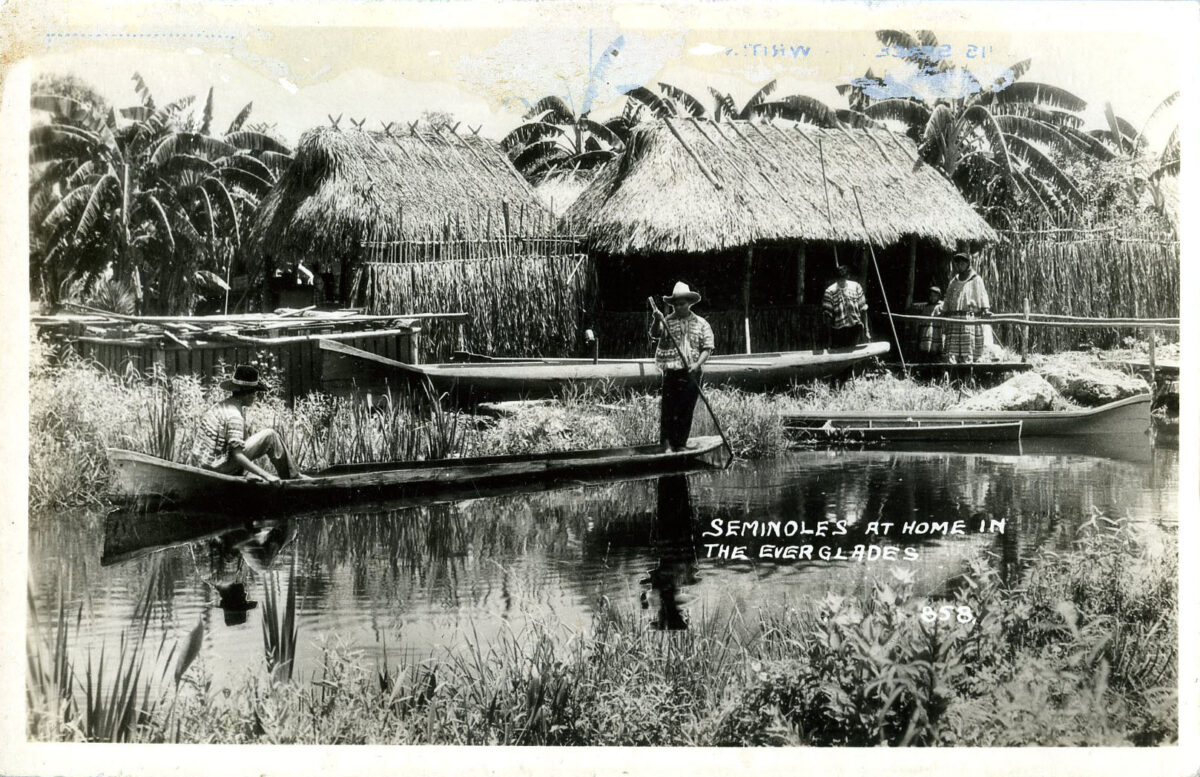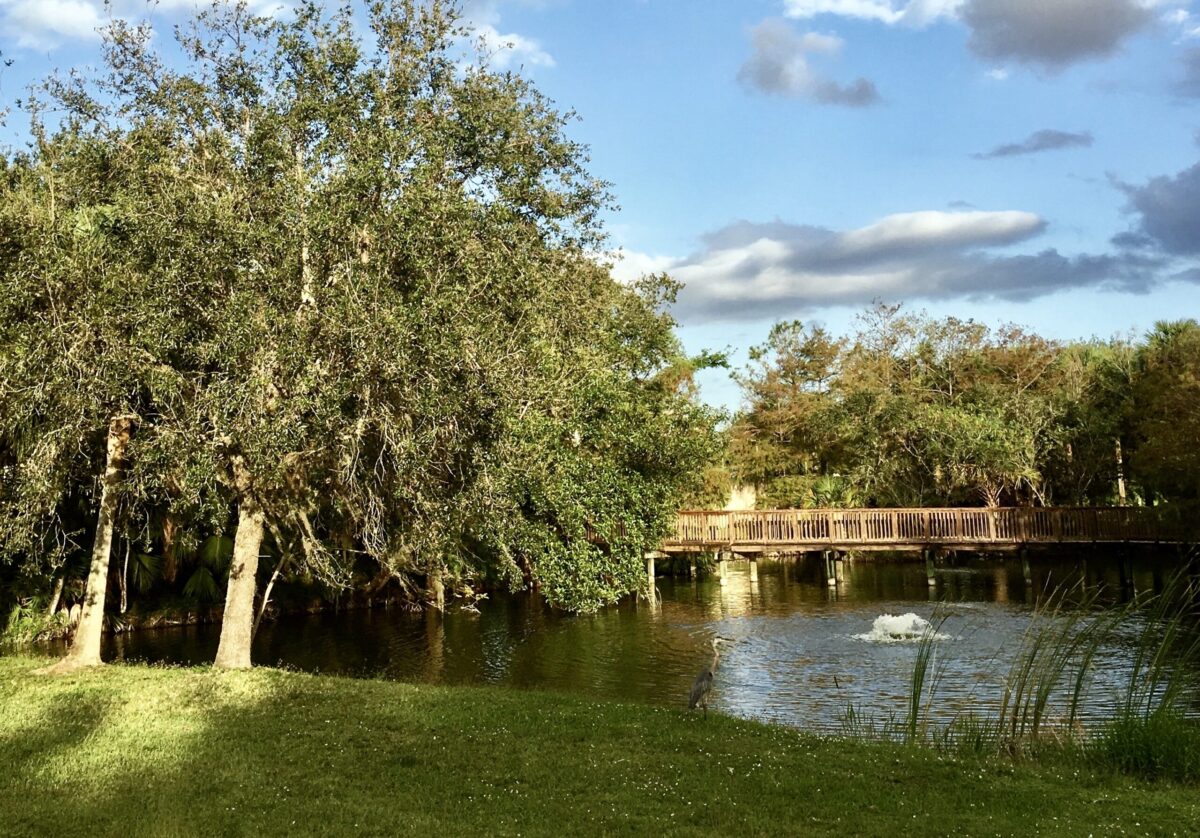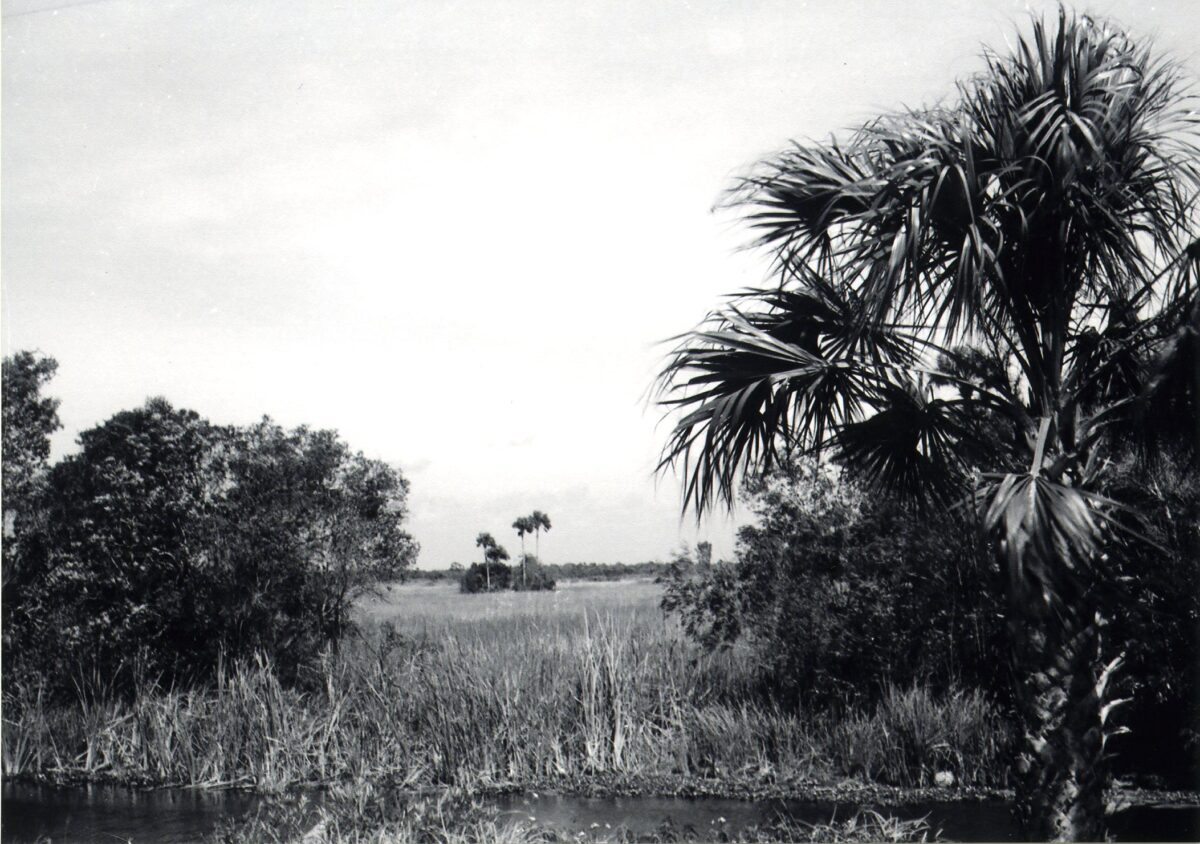
Beyond Earth Day
Happy (Almost) Earth Day! Annually on April 22nd, people from around the world come together to participate in Earth Day activities. This yearly event shows support for environmental protection, awareness of environmental issues like pollution, and peace. But do you know ways that you can participate beyond Earth Day? As we have discussed in previous posts, the Seminole Tribe of Florida is committed to climate resiliency, environmental protection, and Everglades restoration. Participating in Earth Day is a great way to show support, but it is even more important to make ourselves climate conscious every day. Turn your good intentions into good habits! Follow along for ways you can work to change your life and environment for the better, every day of the year.
History of Earth Day
Do you know the history behind Earth Day? The first official Earth Day was April 22, 1970. Senator Gaylord Nelson, a junior senator from Wisconsin, announced the idea of a “teach-in” about the environment on college campuses. The intention was to infuse the same energy as anti-war protests, but center the environment, and air and water pollution. Senator Nelson, along with his co-chair and a young activist named Denis Hayes, began to give the idea shape. The date was chosen to maximize student participation in the events. Hayes ran with the idea, and built a national staff to organize a wide range of events with many local partners. The name was changed to “Earth Day” and media around the event gained traction. In the end, 20 million Americans participated. Thousands of colleges, politicians from across the aisle, and activist groups previously working individually came together for Earth Day 1970.
Earth Day 1970 is considered the largest single-day protest in human history. Its impact was immediate and far reaching. The United States Environmental Protection Agency (EPA) was created that year. A slew of revolutionary environmental legislation followed including the National Environmental Education Act, the Occupational Safety and Health Act, and the Clean Air Act. Congress passed the Clean Water Act in 1972. The momentum continued, and the Endangered Species Act followed in 1973. It brought the environment into the public consciousness and demanded attention. In 1990, Denis Hayes expanded the movement internationally and organized events in over 140 countries. Now, Earth Day features highlighted projects meant to positively impact as many people as possible. The theme for Earth Day 2022 is Invest In Our Planet. It features a number of programs, including The Great Global Cleanup, Sustainable Fashion, Climate and Environmental Literacy, and The Canopy Project.
Beyond Earth Day: What You Can Do
Earth Day is only once a year. In a previous blog post, we learned about the fragile Everglades ecosystem that makes up Florida. Over time, the Everglades has become increasingly threatened. Changes to the sheet flow, climate change, and population pressure have all put a strain on this delicate ecosystem. In order to protect the Everglades, and the rest of the world, individuals need to place the environment as a priority in their lives. Additionally, like we talked about in Ecotourism in Indian Country, being mindful and intentional about your place in the ecosystem is necessary for being a good environmental steward. In both large and small ways, you can make a big impact in the world around you if you think critically about your personal impact. Keep reading to learn some ways you can work to affect positive change.
On a Large Scale
Be Climate Literate – and teach others to be, too!
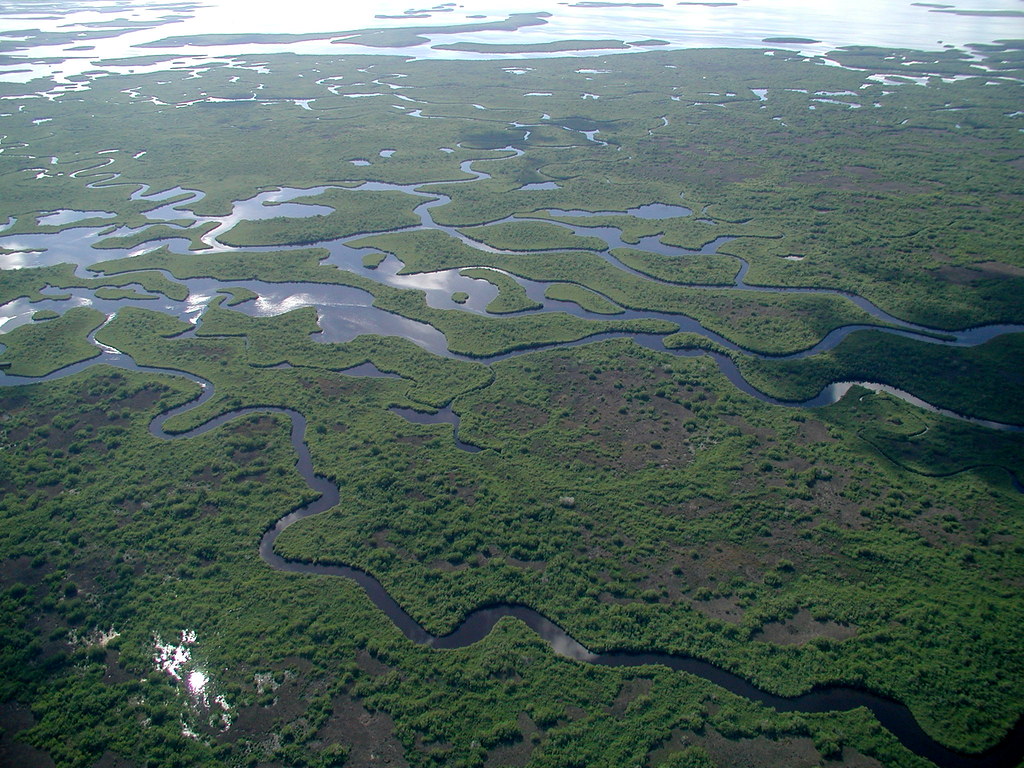
Everglades Backcountry, NPS
Learn about the effects of climate change on your local environment and the world. Educate yourself on the way environmental systems interact. Being climate literate means understanding the guiding principles for making informed climate decisions. They are:
The Sun is the primary source of energy for Earth’s climate system.
Climate is regulated by complex interactions among components of the Earth system.
Life on Earth depends on, is shaped by, and affects climate.
Climate varies over space and time through both natural and man-made processes.
Our understanding of the climate system is improved through observations, theoretical studies, and modeling.
Human activities are impacting the climate system.
Climate change will have consequences for the Earth system and human lives.
Once you have a better understanding of the effects and realities of the world you live in, you can make better daily choices. Teach those around you to be more climate literate, as well. Knowledge is power, and it is the best first step you can take to positively impacting the world.
Make your Voice Heard
Speak up! Make climate issues something you’re informed and passionate about. Vote in local and federal elections, and write to your representatives. Make your voice heard to those around you, and be vocally accountable for your actions.
Be an Ally
In our series earlier this year around Ethics and Native communities, we touched on what it means to be an ally. Being an ally can have a positive impact on the environment, as well. For the Seminole Tribe of Florida, they believe that “if the land dies, so does the Tribe.” Issues around climate change, the effects on the Everglades, and ecosystem health are vitally important to indigenous communities around the world. Center indigenous and marginalized communities and support human rights over profit. Learn more about threats to your local (and international!) environment, and be an ally to indigenous people that are tied to the land. Raise up their voices, programs, and issues.
On a Small Scale
Shop Wisely
Your shopping choices make a difference! Research where you are getting your products, and if they can be eco-friendlier. Reject fast fashion, and seek out companies that use natural and sustainable fibers. Opt to shop secondhand where you can. Reduce plastic use by minimizing plastic food packaging, bags, and other convenience items. Buy items that are biodegradable, and research the impact of the materials you choose.
Shop Locally
When able, choose products and services that are sourced locally. Put your money back into your community’s businesses and minimize items you have shipped. For food, choose options that are locally sourced and in season. Support local farms and farmers. Even small changes can make a difference long term!
Volunteer
Volunteering in your community is a great way to give back locally and help affect positive change. Search out options from your local government or parks to do trash clean up, beautification projects, and more. Or organize your own! Encourage your friends, family, and the people around you to have fun and help the environment.
Conserve Water
From landscaping your yard to taking a shower, small changes can make a big difference in water consumption! Choose indigenous plants for your gardens that can be better supported with minimal additional watering. Install water conserving shower heads and taps, and check your home for leaks. Minimize water waste in your day to day life.
Look at your Food
Over one quarter of greenhouse gas emissions are directly related to food production and consumption. Choose foods and sources that are employ more sustainable options. Meat and other proteins make up the majority of those food related costs. Challenge yourself to reduce meat consumption. Additionally, work to reduce personal food waste in your daily life. Composting food scraps, canning, and preserving are all great ways to reduce your food waste.
It is ok not to be perfect! The intention of these tips is for you to reflect internally on your place in the world. How do you interact with the environment? Are you making responsible, intentional choices in your day to day life? Challenge yourself to examine why you consume the way you do, and make small eco-friendly changes. It may be easier than you think!
Earth Day 2022 with the Seminole Tribe of Florida
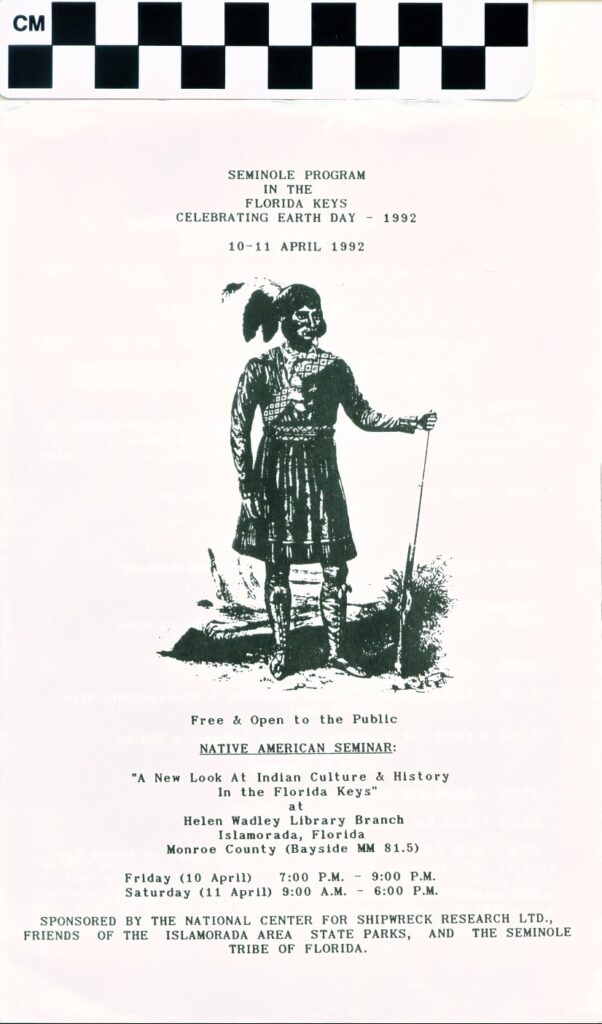
Pamphlet from Earth Day Program 1992, Catalog 2006.71.111, ATTK Museum
Looking for some family friendly activities this Earth Day? This year, two Earth Day events are being hosted by the Seminole Tribe of Florida. On Friday, April 22, 2022 join the Ah-Tah-Thi-Ki Museum on the Big Cypress Reservation. Activities will run from 10 a.m. to 4 p.m. For those looking to tour the Ah-Tah-Thi-Ki Museum during the event on April 22, there will be a discounted admission fee of $5 per person, with children 12 and under free. On Saturday, April 23, 2022 Okalee Indian Village in Hollywood will host a complementary Earth Day event. Like on Friday, activities will run from 10 a.m. to 4 p.m. Admission to the Seminole Okalee Indian Village event April 23rd is free. Both events will feature live Seminole Native musical performances by Rez Jamz and flute music by Gordon Wareham, exhibits, yoga, environment presentations, Seminole Tribal craft and food vendors, and activities tables.
Additionally, if you are a Seminole Tribe of Florida member, consider entering the Recycled Art Contest! Register today to submit a piece of recycled or repurposed art for a special Earth Day exhibit! All submitted artwork must be made from used an/or found clean, recyclable materials. Some examples are cups, bags, bottles, straws, or cans. Other materials can be utilized for structural support. Artwork will be displayed outside at the location in which it is submitted. If you are interested in joining in the Big Cypress exhibit, please bring your art to the Ah-Tah-Thi-Ki Museum on April 18th from 1-5 p.m. If you are interested in joining the Hollywood exhibit, please bring your art to Okalee Indian Village on April 20th from 1-5 p.m. Tribal members only. Winners will be announced at 3:30 p.m. on both days. Enter to win a fun prize!
Ah-Tah-Thi-Ki Museum – 34725 W Boundary Rd. Clewiston FL
Okalee Indian Village – 3551 N State Rd 7, Hollywood, FL


